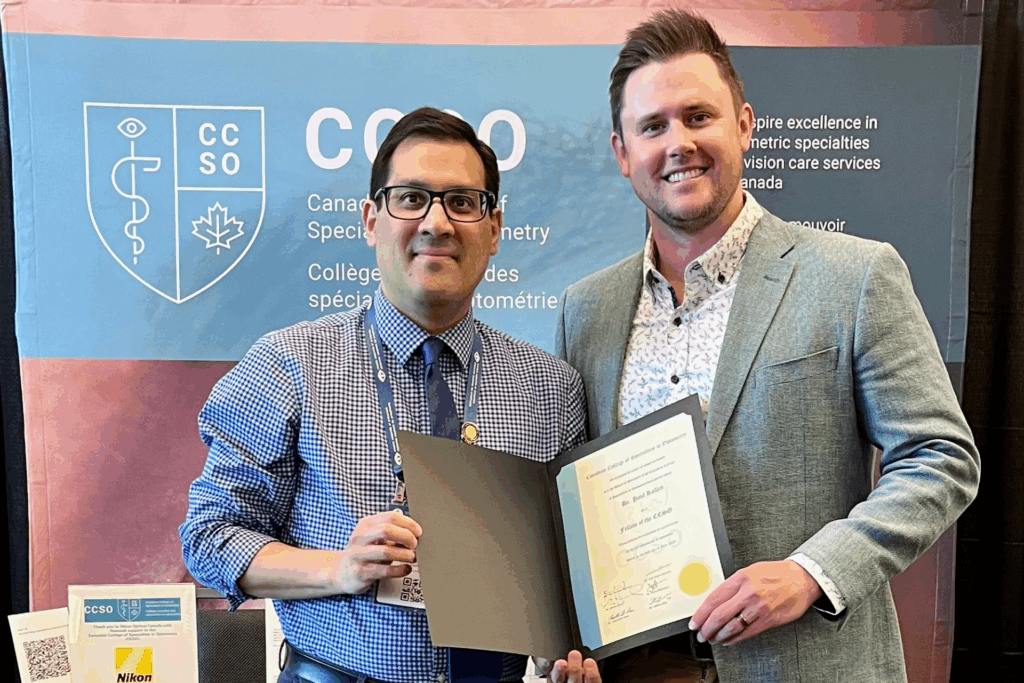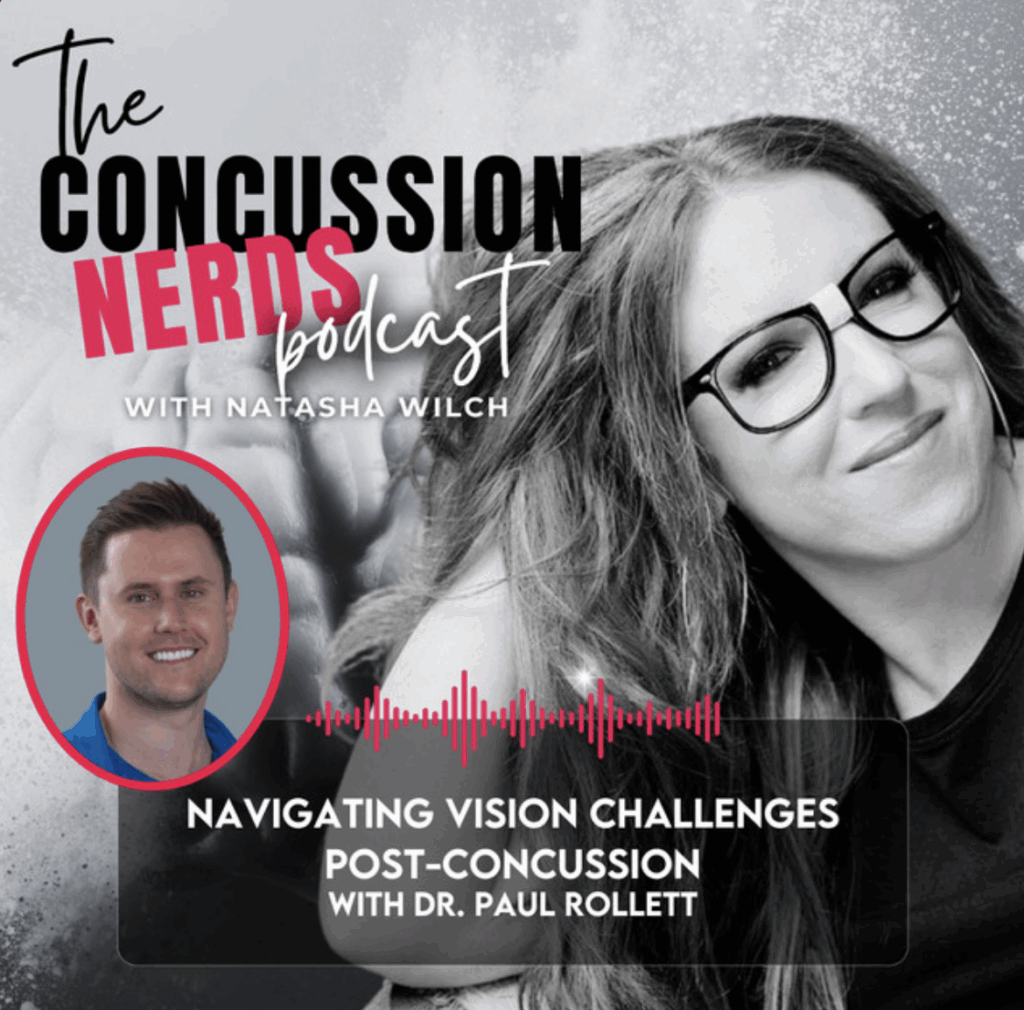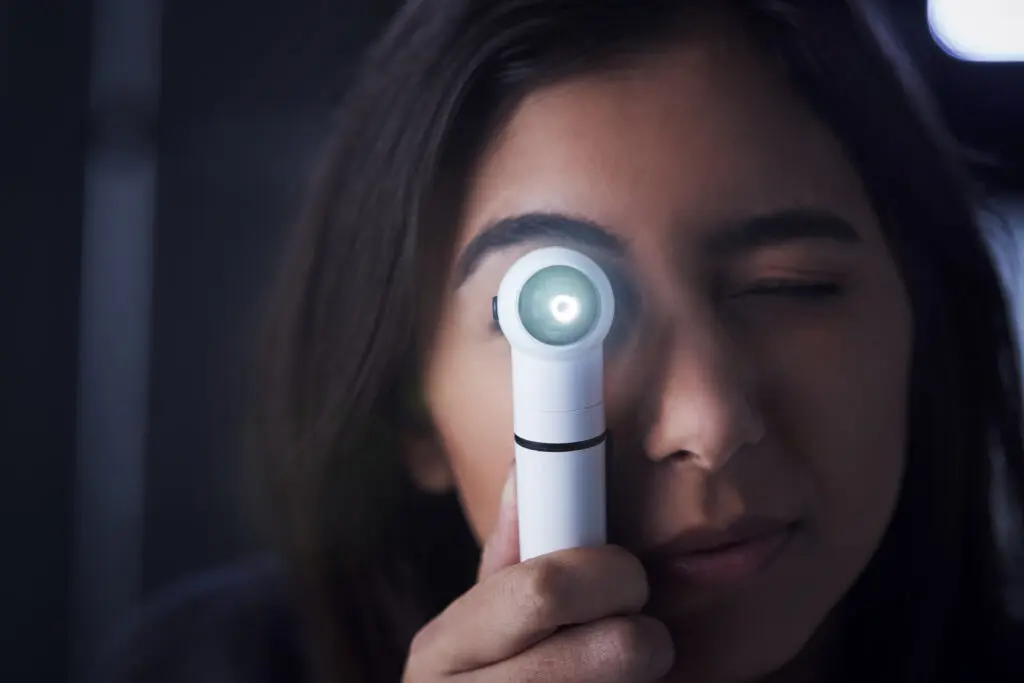I’m grateful to share a meaningful milestone in my work at Okanagan Vision Therapy. I’ve recently been awarded a Fellowship in the Canadian College of Specialties in Optometry (CCSO), a national recognition of continued learning and clinical experience in advanced, evidence-based optometric care, with a focus on supporting individuals with complex visual conditions.
I’m honoured to be among the first three optometrists in British Columbia to receive this designation. This Fellowship represents years of learning, collaboration, and most importantly, patient care. It’s given me a moment to pause and reflect – not only on the steps that led here, but on the many people who have helped shape the journey along the way.
About the CCSO
The Canadian College of Specialties in Optometry (CCSO) is an organization dedicated to promoting excellence in specialty areas of optometric care, including neuro-optometry, vision therapy, low vision, binocular vision, paediatrics, and others.
Through its Fellowship program, the CCSO formally recognizes optometrists who have demonstrated advanced clinical skills, a strong foundation in research and evidence-based practice, and a continued commitment to lifelong learning. Fellowship is not something earned overnight; it’s the result of focused patient care, formal mentorship, case-based learning, and peer review.
In short, it’s less about a title and more about a professional and ethical responsibility: to do better for those who trust us with their vision.
What This Fellowship Represents
For myself, this Fellowship was focused on the area of neuro-optometric rehabilitation – a field that addresses the functional vision challenges that can follow a concussion, brain injury, vestibular disorder, or neurological condition. Many of the patients we meet have visual symptoms that are subtle yet deeply disruptive to their daily lives – difficulty with reading, balance issues, motion sensitivity, problems with visual focus, or eye strain after screen use.
While these concerns can sometimes go unrecognized in standard exams, neuro-optometry offers a way to investigate and address them in a more personalized and rehabilitative way. It’s a field that sits at the intersection of vision, brain function, and quality of life.
This Fellowship doesn’t mark the end of a journey – in many ways, it marks the beginning of deeper engagement with this type of care. It also opens new opportunities to collaborate with other professionals and to help advance how vision rehabilitation is understood across healthcare settings.
A Patient-Driven Path
If there’s one common thread throughout this process, it’s been the role of the patient.
Each clinical milestone has been guided by the real stories of people trying to return to work or school, manage daily headaches, or simply feel more like themselves again. The case reports submitted as part of the CCSO Fellowship were built from these experiences – carefully documenting clinical findings, interventions, and, most importantly, outcomes that matter to patients.
And while every patient journey is different, a few things remain constant: the importance of listening carefully, collaborating closely, and adapting our care to what each individual truly needs.
Gratitude to Our Community
This recognition would not have been possible without the support of many generous mentors, thoughtful colleagues, and trusting patients. It’s easy to list the hours of study or the number of cases submitted and published, but behind each of those are the people who made it meaningful.
I’m particularly thankful for those who opened their doors to clinical dialogue, shared their experiences, and helped guide our team’s learning along the way. Being part of the CCSO Fellowship community is a reminder that none of us moves forward alone – we grow by sharing, reflecting, and asking better questions together.
Why This Matters for Our Patients
While formal recognition is appreciated, the real value lies in how this translates into care.
My hope is that through continued study and connection with other Fellows, I can contribute to making vision therapy and neuro-optometry more accessible, better understood, and more integrated into collaborative models of care – especially for patients who’ve been struggling to find answers.
For example, a child who’s struggling with reading comprehension may benefit from vision therapy in ways that complement the support already provided in the classroom. An adult recovering from a brain injury might discover that their dizziness isn’t just a vestibular problem, but also a visual one – and that therapeutic lenses or specific eye movement training can make all the difference.
These are the types of outcomes that keep us motivated and remind us why investing in ongoing education matters.
Looking Ahead
This Fellowship is not a destination – it’s part of a long-term commitment to doing meaningful work in a field that is still evolving. We recognize that many patients with functional vision issues are still underserved, and that there is more research, advocacy, and public education to be done.
We’ll continue to ask hard questions, share what we’re learning, and stay focused on the goals that brought us here in the first place: to provide care that is thoughtful, evidence-based, and always centered on the person in front of us.
In Closing
I’m thankful to be part of a profession that values both clinical skill and human connection. This recognition from the CCSO is deeply appreciated, but even more so, I’m thankful for the trust that patients and colleagues place in our care.
To everyone who’s helped guide this process – whether through mentorship, partnership, or simply by walking through our clinic doors and sharing your story – thank you.
We’re looking forward to what comes next, and to continuing to learn, serve, and grow alongside our community.
Until next month,
Dr. Paul Rollett, OD, FOVDR, FCCSO




